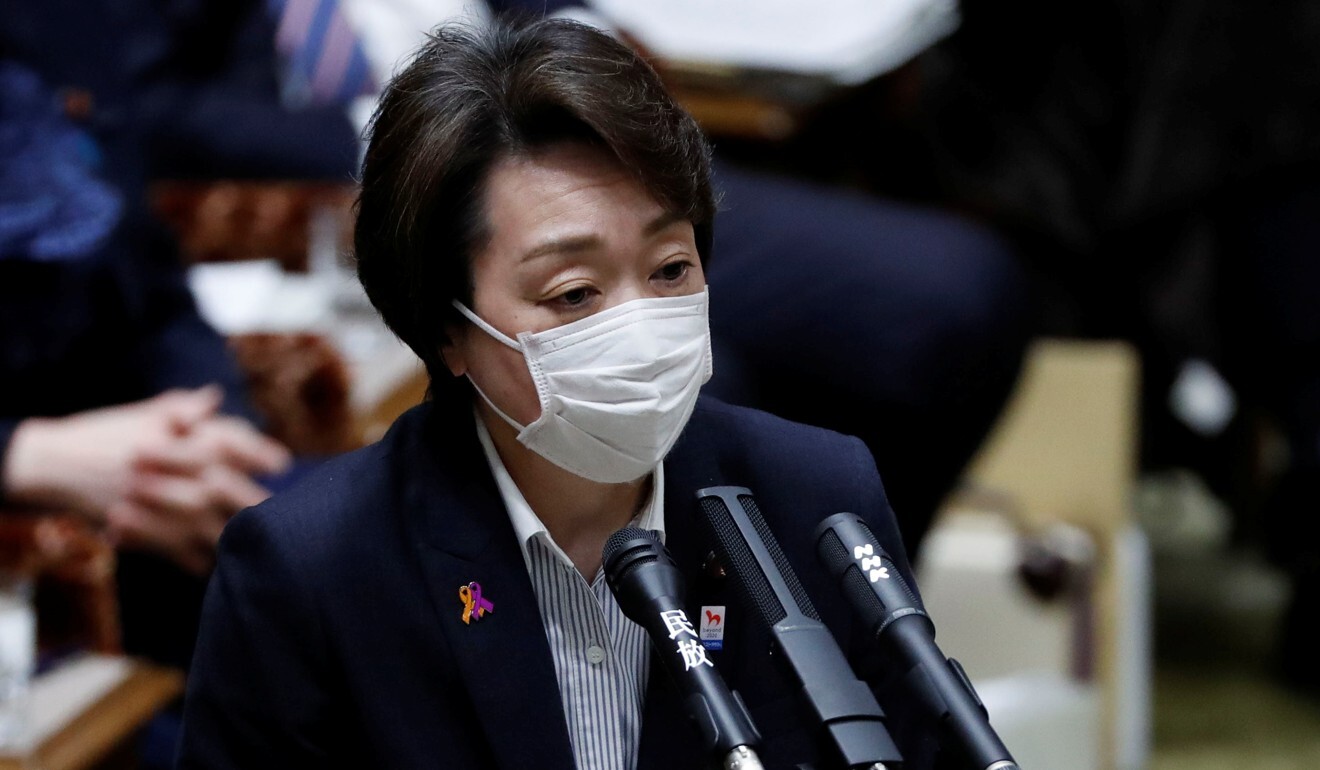
In Japan, coronavirus crisis traps families at home with domestic abuse
- Amid a spate of suspicious deaths and the launch of a national domestic violence hotline, experts are warning that the worst could be yet to come
- Couples that would normally spend whole days apart are now forced to be together round the clock – and there’s more than ever to argue about
Unveiled by Seiko Hashimoto, the minister for women’s empowerment, the free hotline is presently available from 9am to 9pm, but from April 29 it is planned to be a 24-hour service, with support available in a number of foreign languages – including Thai, Tagalog, Korean and Vietnamese – from May 1.

Recent cases include the arrest on Thursday of 45-year-old Chieko Yoshida on suspicion of killing her 47-year-old husband. Their relatives and neighbours in the town of Kuji, in Iwate Prefecture, told local media that they were unaware of any problems between the couple.
The following day, an 18-year-old woman in Fukushima Prefecture was arrested on suspicion of killing her nine-month-old son. That same day, police in Aichi Prefecture took a 22-year-old woman into custody on charges of killing her nine-day-old son.
Elsewhere, an unemployed man from Saitama Prefecture who said he could no longer take care of his 85-year-old mother has been arrested on suspicion of killing her, while 59-year-old Kazuo Makino was arrested in Tokyo on Sunday, accused of killing his 57-year-old wife at their home.
Police told reporters that Makino had slapped his wife, Miki, after the pair got into a drunken argument about money. She fell, hit her head and died about two hours later.
“We are already seeing an increase in domestic violence cases across the country, although it is impossible at the moment to put an actual figure on the number of incidents that are being reported to the authorities,” said Tomoko Suga, a professor at Rakuno Gakuen University in Hokkaido who has studied domestic violence in Japan for more than two decades.
“If a relationship was already in trouble or under stress, then the situation that we are in now is going to make things even worse,” she said.
“Previously, the husband or both would go out to work so they might not see each other for most of the day, but now they are forced to stay at home because their company is making them work remotely or they have lost their jobs – and they’re clashing.”
The problem is only exacerbated by money worries and the fact that schools are closed too, meaning children are also stuck at home with their parents.
Suga told of a woman in Sapporo who had written to her on Tuesday, begging for advice after her husband lost his job. He had taken to drinking every day from midmorning and would abuse his wife and their two children when drunk, she said.
“She said she can’t stand it any more,” Suga said. “She was desperate. The best I could do was to give her the number of a lawyer and the city shelter for women and to tell her to get help as soon as possible.”
Sapporo, the largest city in Hokkaido, has one shelter for abused women and can only take a maximum of four families. That is usually sufficient, Suga said, but as the situation has deteriorated in recent weeks, the city authorities are now having to put other families that are seeking shelter into hotels.
Vickie Skorji, director of the Tokyo-based TELL Lifeline, said there is evidence of similar situations playing out in other countries around the world.
“Social distancing and isolation puts people under pressures and if they don’t have a great relationship already, then they are inevitably going to be under even more stress than usual,” she said.
“So now we have this health disaster, the economic downturn and people under pressure being forced to stay at home. It is putting people at risk – and that’s not just women and children because women can also be abusers.”
There are reports of the coronavirus pandemic forcing some shelters in other countries to shut down, which has not happened in Japan yet. But Skorji said that in terms of domestic violence, the country is only seeing “the tip of the iceberg”.
“At the moment, we are just seeing the impact of the initial wave of this crisis, so what is going to happen when, in a few weeks or months, people can’t get their jobs back, they’re still not earning much money, other people can’t get the health care that they need?” she said.
“I think that in the near future we’re going to start seeing a large number of mental health issues and what we are witnessing now is just the tip of the iceberg.”

